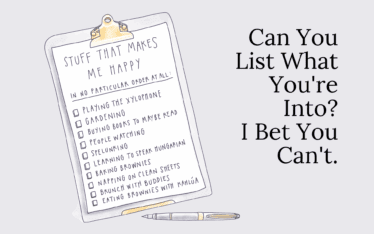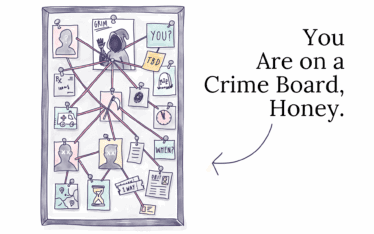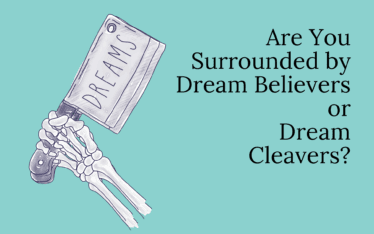We already know that Covid has changed our lives in remarkable ways. I won’t bore you with those details— you’re already well aware that you’re working from your dining room table, home schooling people you love but wish were out of your home for most of the work week, and eating way too many Twinkies*.
I’d like for us to talk about the tectonic shifts that are happening with what we believe actually matters in our lives now, and how we can harness these shifts to our advantage.
A quick lesson in death (to help bring us back to life).
Now that we’ve surpassed the dreadful mark of 1,000,000 lives lost to Covid (200,000 of those souls in the US), the awareness of death has slapped some of us in the face with loss too close to home. For most of us it has seeped into our consciousness and become like a way less fun game of Six Degrees of Kevin Bacon**: how many people does it take to connect you to the cold grip of Covid death?
Brushes with death can bring what is known as Terror Management Theory to life– triggering us to double-down on our established worldviews (like our political and religious beliefs) and bolster our self-esteem as a way to feel more secure and lasting in an unfortunately temporary world. These behaviors can be a tad unbecoming. Death awareness can do more than elicit this kind of defensiveness, however. I’ve said it before (here) that Covid has provided an extraordinary summoning for most of us. Grasping the impermanence of our existence can act as a proverbial wake up call, waking us up to live on purpose with the time we have left.
We have a lot to learn from people who have undergone near-death experiences or close encounters with death. They tend to favorably sharpen and prioritize their values, which typically shift from culturally conditioned matters of importance (like what kind of car we drive) to more personal and intrinsic values (like who we’re driving to spend precious time with, in whatever make and model of car gets us there). Those who have sidled up closely with death typically undergo revised ways of seeing themselves, others, and the concept of time. Many open themselves up to new educational, career and relationship experiences as they grow and shape their new beliefs– essentially creating an architecture of understanding in their heads that enables the acknowledgment of paradox– that meaning and richness can be found in the midst of complex despair (we’ll talk more about Post Traumatic Growth in an upcoming article, kids).
Cancer patients, for example, often find meaning by reappraising their lives and finding their time more valuable, developing refreshed attitudes towards their lives, becoming more self-aware and reorganizing their priorities to diminish what they once saw as trivial issues– like worrying about logging in late for a Zoom meeting, or concerning themselves with other people’s problems. These patients lasered in on what they deemed to be the important things in life (people that mattered, revitalizing interests, etc.). We might not be able to care less about the trivial things, but can we care more about the more meaningful things?
Covid’s impact on shifting life priorities.
Many of my clients are noticing new priorities emerge out of the rubble of working from home. For some their careers– once the epicenter of their lives– have shifted downward on the priority scale as family needs have demanded more attention. Initially resentful of this, many clients are softening to the idea that a different kind of balance between work time and family time might be in order. Conversely, some are finding work to be even more energizing and are reengaging like never before. More joy and fulfillment might be possible in different corners of these clients’ lives.
Some people I am working with are reflecting on the shortcomings of their lives (in a healthy, non-depressing way)– thinking about the gaps (or chasms) between what they once said they wanted out of life and the reality of the lives they’re living. I’m a big fan of the Deathbed Regret Test: imagining yourself (peaceful, painless and pretty) on your deathbed, thinking back on what you’d be proud of and how you maybe wished you’d spent your life (especially 2020-2022). That can be the catalyst to readjust your own list of priorities.
It’s not that most of us want MORE out of life right now, it’s that we want it different &/or better. (Okay. I want the more part bigtime, but mostly just the better part.) Many are now prioritizing their relationships/ connections with others, personal growth and development (hear ye, hear ye), health (other than the Twinkies), spirituality (24% say their faith has grown during Covid)… you name it. There is no right priority to awaken to; it’s relative to each one of us.
How To Reprioritize What Matters During a Global Pandemic, in 3 Steps.
Step 1: Identify what matters.
Take a stack of post-it sticky notes, index cards, old Starbucks napkins– whatever you have handy– and sit down with your favorite drink.***
Write a life priority on each sticky, then sort until they are in order of what feels most important to you. Don’t belabor this, just do your best. Go with your gut about what priorities attract you like a magnet or repel you like your mask breath.
- Physical Health
- Friendships
- Family
- Significant Other/ Romance
- Career
- Fun + Recreation
- Spirituality
- Physical Environment (physical spaces you live in and with: home, office, car, clothes, etc.).
- Personal Growth + Development
- Finances
- Contribution to Society/ Community
- Other
Handy life tip: you might not want to leave your stickies up on the bedroom wall for your partner to discover that “relationship” is low on your list. Maybe do the stickies in the basement.
Step 2: Pressure-test your priorities.
Look at the top 2-3 priorities and answer these questions:
- To what extent have you been living your life according to these 2-3 priorities?
- Would the people in your life (the ones you really care about) know that these are your priorities?
- What are you willing to compromise to make each priority a reality? What tradeoffs are you willing to make?
- Are any of your priorities competing, and if so, how can you handle that? (E.g.: you might want your career to soar right now, and you also want to get a grip on your health. When do your workouts fit into a long work day?)
- How will you feel in six months from today if the decisions you make between now and then align with these priorities?
- Handy life tip: EVERYTHING CAN’T BE A PRIORITY. You can’t have seven areas tied for first place, even if you are a go-getter. Ever feel pulled in too many directions? Exhausted? Yeah. Whittle that list down, friend.
Step 3: Take action to start being THAT version of yourself.
The road to hell is paved with good intentions; I know this because I have paved several miles of it myself. I have to work hard at taking action with a lot of my dreams. You can want a life that reflects the priorities you’ve diligently ordered, and even if the whiff of death has caused those internal shifts we talked about, you’ll still need to work at making your life-well-lived happen.
For example, if you’ve just landed on the notion that your friendships really are a top-tier priority, you’ll need to take action like plan for a catch-up call/ FaceTime/ meet in the park. Simply scheduling time together is what makes the difference between friendships that are dead or alive. (That and actually liking one another.)
Personal growth pulling your priority heartstrings as of late? You’ll need to take action by registering for a course, applying for a program, initiating coaching, ordering the book… you get the idea.
Feeling compelled to make serious strides in your career, to maybe also meet your newly prioritized financial goals? Take action by emailing your boss to schedule a “what’s next” career conversation, map out a succession plan for yourself, brush the dust off your resume, book an informational interview for next week about a role you’re interested in.
Putting the priorities of your life together.
So here we are. Covid is tinkering with our priorities– the organizing principles of our lives, NBD!– and it’s like the golden ticket we didn’t know we needed to land in our laps.
Reflecting on death can illuminate the value of life and teach us to live our lives through fresh eyes. Take the time to pause, identify your priorities (get curious if they have changed from pre-Covid to now, and why that might be), and take action in the direction of those areas that matter. Our priorities will change again and again as we experience new things over time. Let’s use this time to our very best advantage… with a vaccine on the horizon, we don’t want to miss this valuable window of time to reorganize what matters.
*Hostess is realizing “the sweetest comeback in the history of ever” in part because we’ve prioritized comfort foods as we stay at home. (Sometimes a Ding Dong is just what we need.)
**Kevin Bacon upped his cool factor by saying, “Let’s use this 6 Degree thing to do some good!”, to encourage social distancing.
***Drink a cocktail, mocktail, tea, water– whatever you fancy. I am digging the quote from chef David Gurewitz (from the linked article above) that “each individual should understand their own level of moderation, because alcohol can be a sort of emotional line of credit with really high interest rates, so to speak.” Nodding with you, David.







